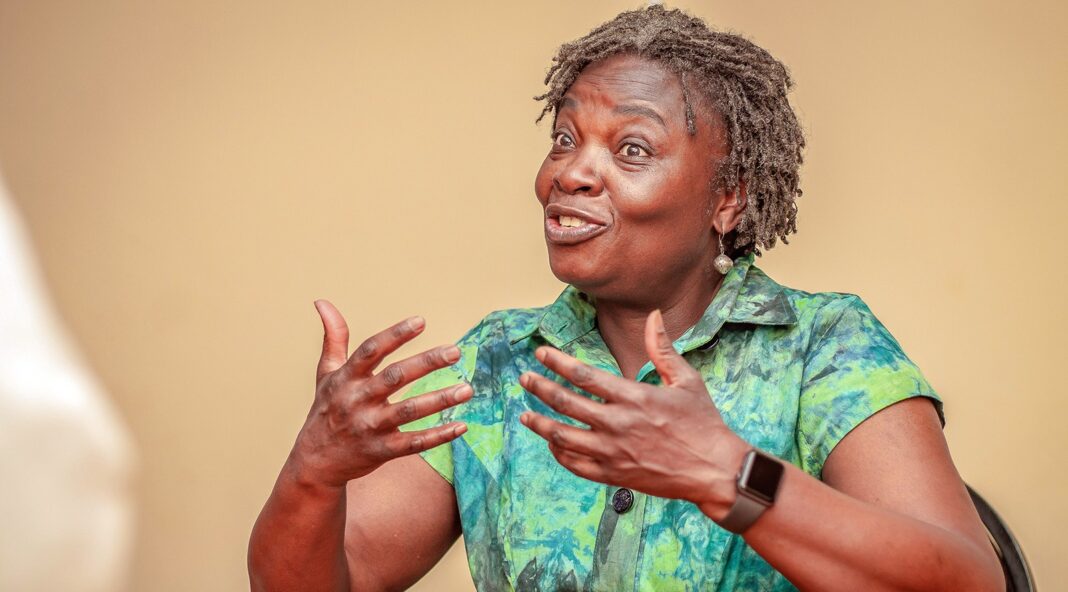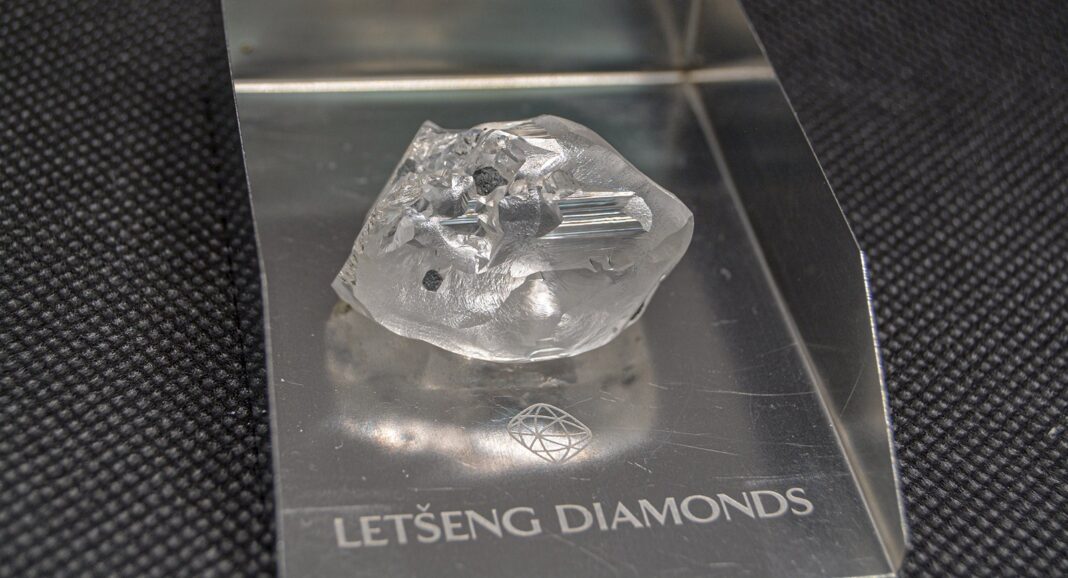By Neo Kolane
The World Bank Regional Vice President for Eastern and Southern Africa, Dr Victoria Kwakwa, has a mammoth task on her shoulders. An economist and development expert with over 30 years’ experience, Kwakwa leads the Bank’s active portfolio of 313 operations in 26 countries, totalling US$58 billion. She also oversees an extensive programme of cutting-edge analytic work, technical assistance, and policy advice.
theReporter’s Neo Kolane sat down with Dr Kwakwa during her recent visit to Lesotho to assess the progress of World Bank-funded projects in the country, particularly the Entrepreneurship Hub and Seed Financing Facility, a flagship programme under the Competitiveness and Financial Inclusion Project in the ministry of trade, industry, and business development.
I understand this is your first visit to Lesotho as World Bank Vice President for Eastern and Southern Africa. What have been your impressions so far?
Indeed, this is my first visit to Lesotho. Firstly, I have really been impressed by the hospitality and warm reception that I received from Basotho as well as the government.
I’m also impressed by the beauty of the country. I had a chance to go outside of Maseru city to see some of projects supported by the World Bank.
I’m very delighted that the government is committed to move the country forward.
We are also ready to continue pursuing our partnership with the government of Lesotho to develop the country. Yes, there are challenges and I think it is important to strengthen our work to help move Lesotho forward.
What is the nature of the current engagements between the World Bank and Lesotho?
The World Bank has been a long-standing partner of Lesotho. We appreciate the partnership which is mutually beneficial to both parties. Through this partnership, we have been able to contribute in some small way to the progress Lesotho has made over the last several decades.
Recovery from the COVID-19 pandemic globally has been slow and at the same time, we have hardened conditions for international finance with global interest rates rising. This is inevitable.
Several countries, particularly those in Africa, have lost ground in terms of development gains. But we’re determined to boost our partnership with Lesotho to help it address its developmental challenges.
The total amount of commitments stands at about U$375 million, of which about U$200 million is undisbursed. We have investment projects in a range of areas including Morapeli Secondary School. We’ve an education financing project that helps schools to reduce dropout rates and increase retention of students in junior and secondary school. It seeks to improve the quality of teaching and childhood education.
We are also doing a lot to strengthen Lesotho’s health, transport, energy, and agriculture sectors. We’ve also just approved a public sector public financial management project which seeks to promote transparency and good stewardship over the country’s resources. These are some of the projects we are doing.
We also engaged with the government on policy reforms and supported that through a budget instrument.
What are you hoping to achieve with this visit?
The primary aim of my visit is to explore ways of strengthening the partnership between the World Bank and the government of Lesotho. Like I told the Prime Minister, Sam Matekane, it is a good time to step up our partnership. My visit signals the importance of this. My being here and spending two days is a clear indication that we want to remain engaged. I also wish to understand the country better.
We discussed with the government and agreed on a number of targets to achieve. We also deliberated on some multiple challenges facing Lesotho. I was also here to see how our projects are going on across the country. Our aim is to have these projects achieving greater impact.
How is the World Bank going to support a private sector driven, export-oriented economy for job creation and effective public sector in Lesotho, and what is going to come out of that?
When you look at Lesotho, it is similar to some other African countries. There is a heavy dominance of the public sector and the government in terms of driving the economy. It is historical for several reasons, and clearly, nowhere in the world have we seen public sector-dominated economies managing to produce dynamic economies that sustain growth over a long period of time.
Making the transition from a public sector-led to a dynamic private sector driven economy is super important.
The first thing is the country needs to adopt policy reforms that create an enabling environment for the private sector so that it can do business profitably and be productive.
We are working on various legislations that need to come into place, including an investment law.
Lesotho further needs to find ways of assisting State Owned Enterprises (SOEs), because sometimes they present unfair competition to the private sector because they get all sorts of support from the public sector.
Also, the playing field needs to be levelled to allow the private sector to compete on the same level as SOEs.
We also want to help build a culture of creative entrepreneurship so that entrepreneurs understand business better and know how to take risks.
What has been achieved since the launch of Country Partnership Framework (CPF)?
Our World Bank team is going to do a review of the project so that we know where we are right now. I can’t give you all the details, but generally, we are working to spread our work across the country so that we are able to reach some of the most vulnerable citizens. That’s the key plug in the CPF. We want to help reduce the high level of inequality in this country. We’re doing this by working hard to deliver the required financing for identified projects. We’re aware that some of them take time to implement. This means their impact might not be seen right away. Generally speaking, we are on a good track. We are bringing resources, policy advice, and technical assistance to support Lesotho’s development.
The World Bank has embarked on an evolution plan. Tell us more about this.
The World Bank has been asked by its member countries to do more to help countries like Lesotho which face very difficult challenges in the global context. As a leading development institution, we have put together a roadmap to respond more to the challenges faced by developing countries.
At the centre of this, we need to have more programmatic medium-term approaches to our work, as opposed to one silo project here and another project there. We have to aim for a bigger impact, that’s what it is fundamentally about.
We also need to have a medium term sustained programme approach to get such bigger impacts.








